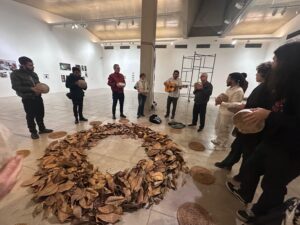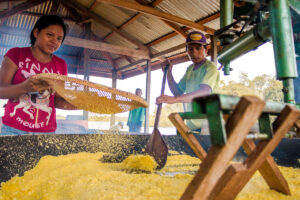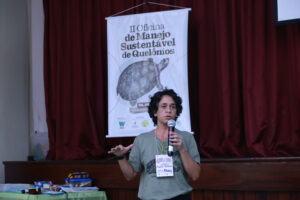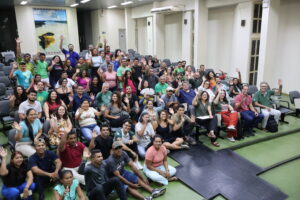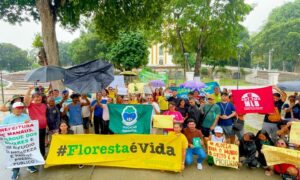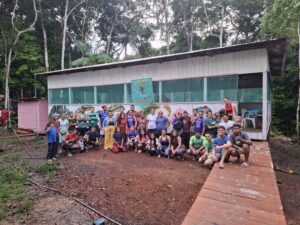The Ecological Games brought together residents of the Mid-Juruá to celebrate the annual activity of community conservation of beaches and turtles.
By Maria Cunha
The communities of the Conservation Units Reserva Extrativista Médio Juruá and Reserva de Desenvolvimento Sustentável de Uacari gathered on November 17th in the community of Xibauá for the Ecological Games, which comprises contests and competitions. The event annually takes place in the region. The event’s purpose is to release chelonians that are part of the sustainable actions carried out by the communities and especially by the monitors who take care of the beaches.
The work of monitoring the chelonians begins when the females lay eggs on the beaches of Juruá River. Monitors watch the beaches to prevent invaders from capturing the eggs. When the hatchlings are born, they are transferred to tanks and cared for until their size is suitable for release into the river, increasing their chances of survival.
The numbers show how much this sustainable action has helped the preservation of Amazonian chelonians’ species. In 2010, in the Mid-Juruá region, 12 nesting sites were protected by 35 monitors and 120,000 hatchlings were released back into the wild. In 2022, 19 nesting sites were protected by 51 monitors and 280,000 hatchlings safely returned to the river.
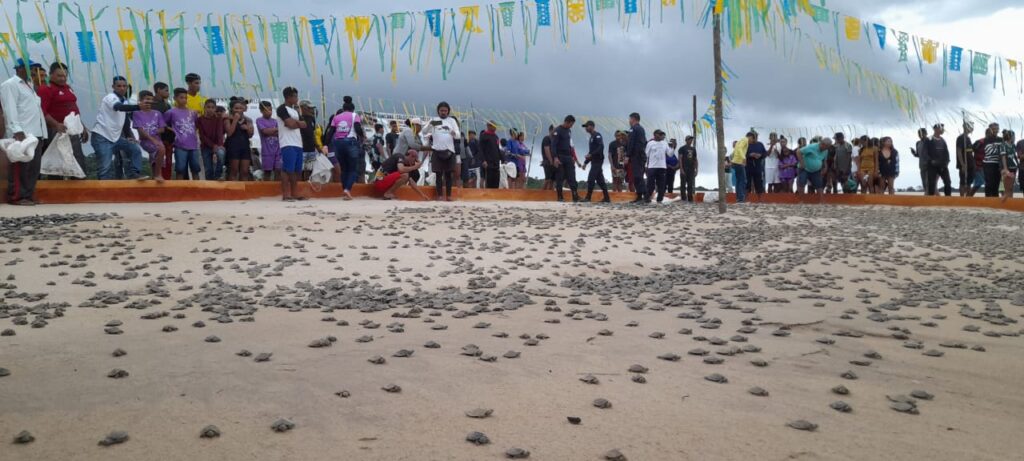
In addition to closing the annual monitoring cycle, the event is a moment of celebration and features cultural activities and sport competitions. “The Ecological Games is a time for fraternization between the communities that play this role as guardians of the forest so well. This year of 2022, 403 people were present, including children, young people, adults, monitors, leaders… , young people from the São Raimundo Community who participated in the event.
Community monitoring of beaches to protect turtle nests also protects other species that are not the target of the activity. That’s the case of some migratory birds that are more seen on protected beaches now. This shows that any and all actions aimed at conserving the Amazon and its species can make a difference. This is the reflection that Ecological Games brings. It’s an activity that mobilizes, teaches, and provides environmental education in a way that gives hope for an even better future for the entire population living under trees’ canopy.
“The ecological Games is the moment to transform our conservation actions into great hopes for the social and cultural development of our region” says Gabriel Cunha, resident of the São Raimundo community.
The region is committed to promoting a new production chain based on conservation experiences carried out with chelonians, so that the activity can generate income for the population, in addition to protecting the species. After all, one of the main difficulties faced is the remuneration of beach monitors, who are often not rewarded for their work in conserving beaches and chelonians.
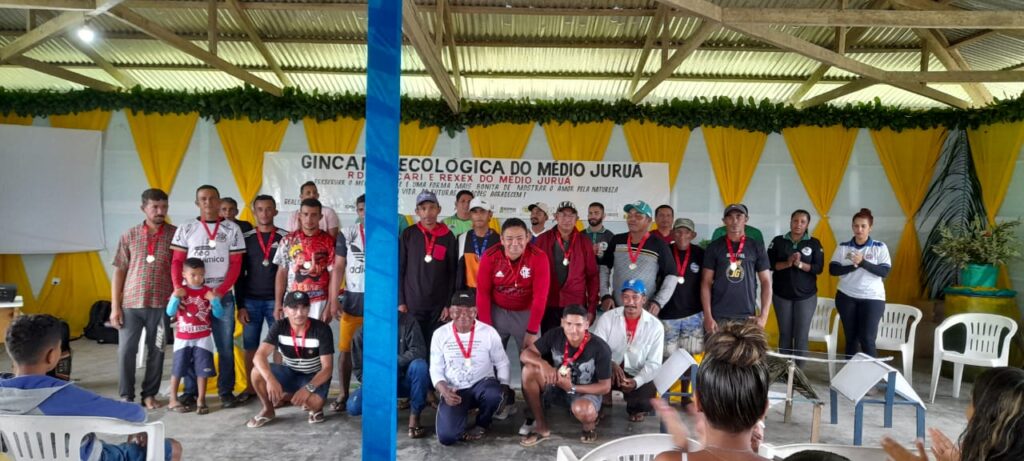
The monitoring of the beaches and chelonians is executed by Association of Extractivist Residents of the Community of São Raimundo (Amecsara), Association of Agroextractivist Residents of the Uacari Sustainable Development Reserve (Amaru), Secretary of State for the Environment (SEMA/DEMUC) and Chico Mendes Institute for Biodiversity Conservation (ICMBio).
This year, the institutions that supported the monitoring work and the Ecological Games event were the Ministry of the Environment through the Amazon Sustainable Landscapes Program (ASL), the Association of Rural Producers of Carauari (ASPROC), the Sustainable Amazon Foundation ( FAS), the Pé-de-Pincha Project, the Municipality of Carauari and the Juruá Institute.

